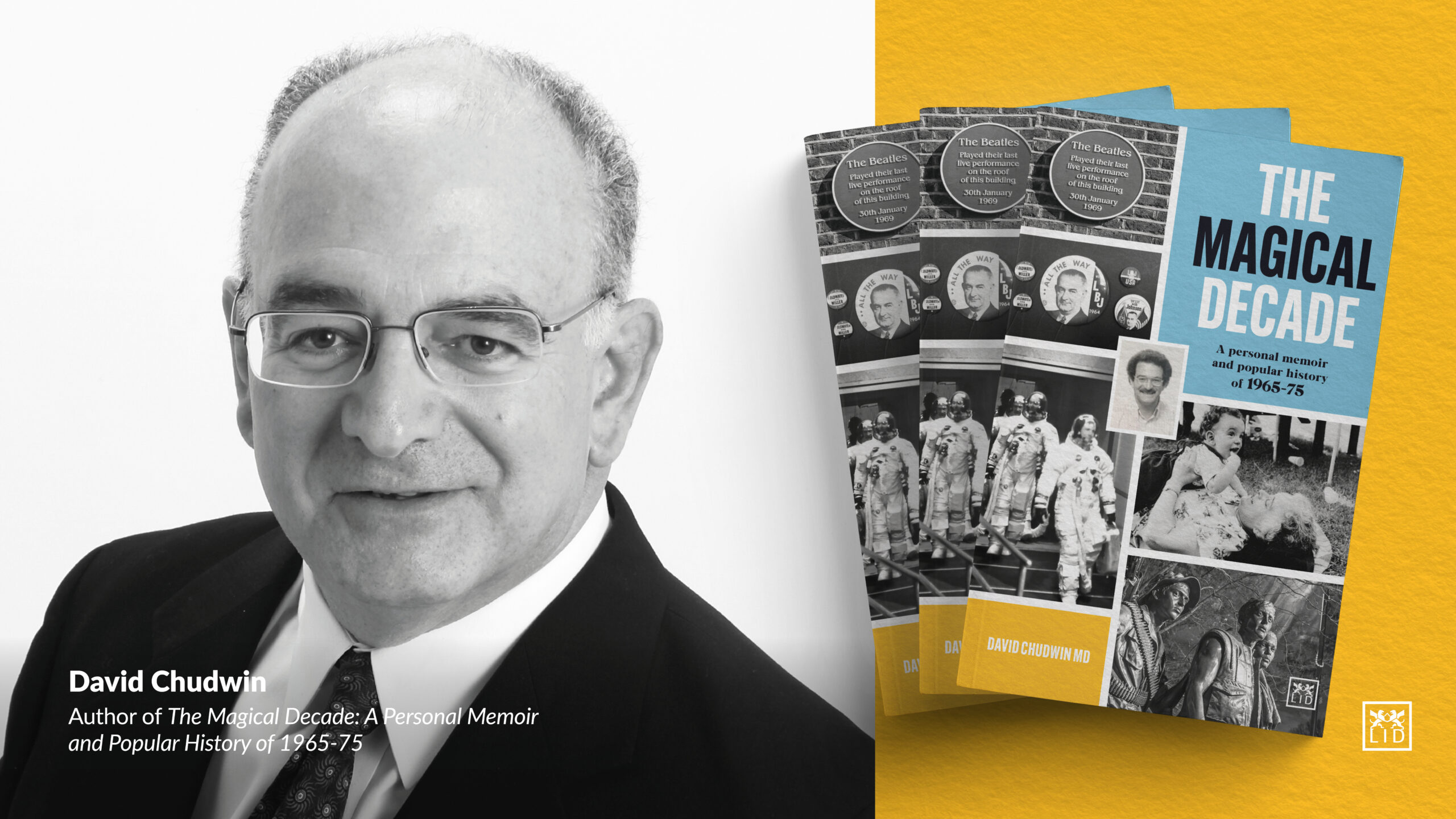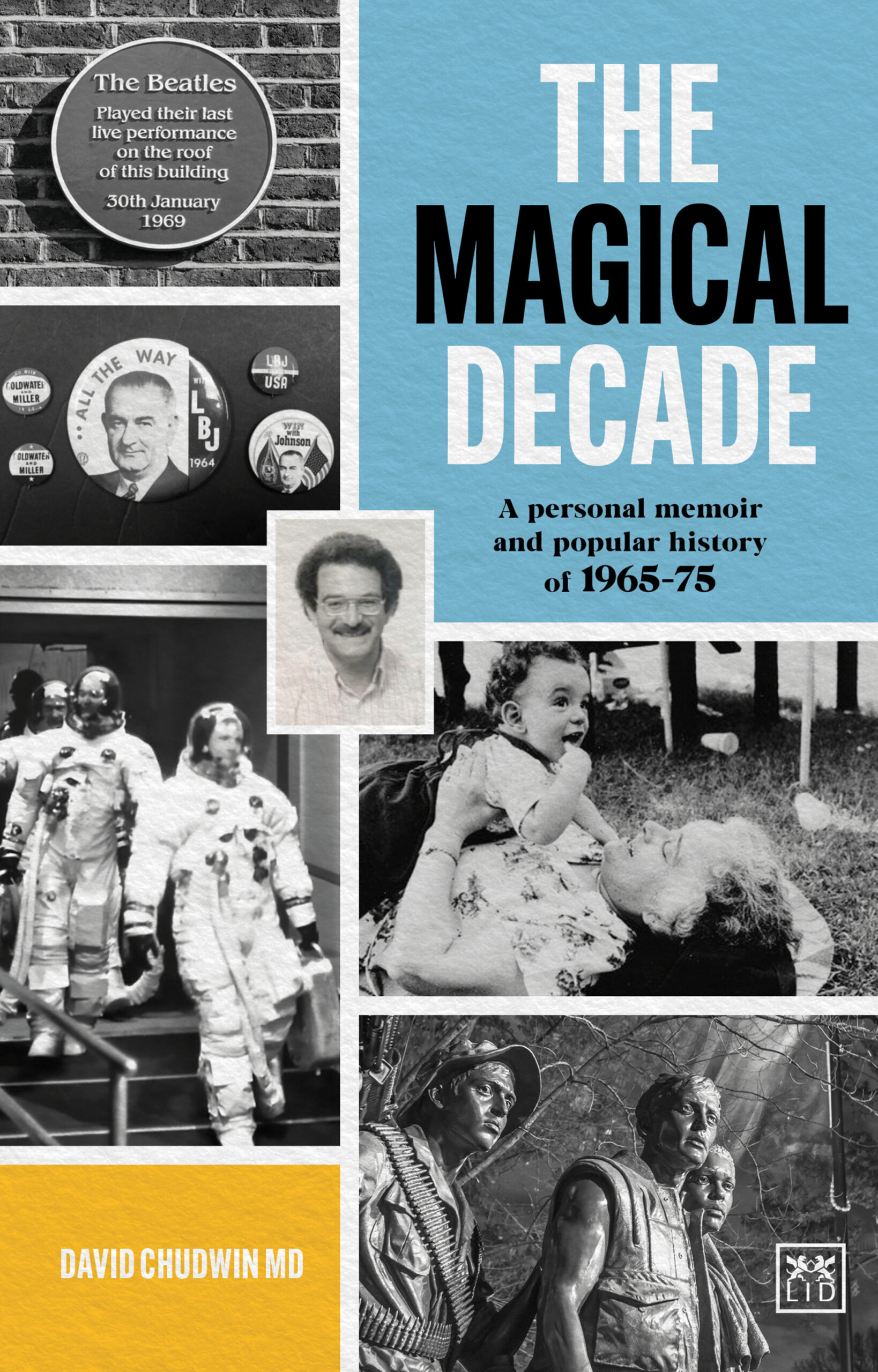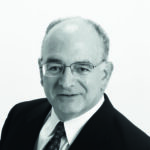|
The Lessons Learned from the Magical Decade with David Chudwin
The Lessons Learned from the Magical Decade

By Guest Contributor David Chudwin
Author of The Magical Decade, David Chudwin, shares the lessons he learned from the magical decade.
In my new book The Magical Decade: A Personal Memoir and Popular History of 1965- 75 I review the tumultuous changes in almost every field over that 10 year period. From international relations to domestic politics, from revolutionary changes in culture to advances in computer technology and medical science, from changes in clothing and hair styles to new fads in toys and music, the era I call The Magical Decade has had a profound and continuing impact on our society.
What are some of the lessons to learn from looking back at this period?
Cynicism about politics
A major lesson, I would argue, is cynicism about politics. In 1964 President Lyndon Johnson was the Democratic Party nominee for U.S. President, running against Republican Senator Barry Goldwater. Johnson portrayed himself as the peace candidate and painted Goldwater as a reckless warmonger who would involve the U.S. in a nuclear war. The Johnson campaign ran an effective television advertisement showing a young girl picking daisy petals with a nuclear countdown in the background. The ad’s purpose was to ignite fears that a Goldwater presidency would lead to war. Johnson won in a landslide but under his leadership the U.S. sent over a half million American troops to Vietnam over the next three years.
A few years later, President Richard Nixon said he had a “secret peace plan” to end the Vienam War. It turned out that parts of his plan included using conventional bombs to spread the war to previously neutral Laos and Cambodia. He also purposefully plotted to convince the North Vietnamese and their allies that he would use nuclear weapons. Since then, I have been skeptical about what politicians promise.
Politicians may start as well-meaning reformers, but many change to making remaining in office their chief goal. Keeping power becomes more important to them than using power for good causes. These good causes, the ends, do not justify the means because the ends become corrupted by the means. This cynicism about politics has caused me skepticism about the motivation of politicians, especially their financial backing. “Follow the money” is a useful dictum when trying to understand politics.
Be wary of foreign wars
Another lesson learned during The Magical Decade is to be wary of foreign wars. Attempts by the U.S. to get involved in foreign civil wars have generally been unsuccessful, with Vietnam the prime example. President John Kennedy had an activist foreign policy in the early 1960s which supported anti-communist movements around the world in the name of “nation building.” The results often put the U.S. in the middle of domestic disputes in other countries. For example. U.S. attempts to intervene in Cuba with the Bay of Pigs Invasion in 1961 were a failure and led to the Cuban missile crisis.
Other U.S. covert interventions occurred in Iran, Guatemala, Chile, Angola and Afghanistan before, during and after The Magical Decade. The Iraq War was a more recent example of an interventionist policy based on false premises (that Saddam had weapons of mass destruction) and ignoring centuries-old antagonisms in Iraqi society between Sunni and Shia Muslims.
Of course, there have been other conflicts in which the U.S. has had no choice to participate. The Japanese attack on Pearl Harbor in 1941 and the 9/11 attacks on New York, Washington DC, and in the air over Pennsylvania in 2001 by al-Quade required wars due to the necessity for self-defense.
Be open to new technology
Another lesson is to be open to new technology. In 1965 there were no personal computers, no internet, no mobile phones and no social media. Rendezvous and docking in space were on the drawing boards but not yet accomplished. There had been no successful heart transplants and only limited kidney transplants. Computerized tomography (CT) scans had not yet been invented. Gene editing or gene therapy had not yet been invented.
By the end of The Magical Decade in 1975, there had been great advances in technology. The first electronic watches, first personal computers, and the forerunner of the internet (ARPA Net) had appeared. In space, 12 men had walked on the Moon and Skylab, the first U.SS. space station, had flown. With development of powerful immunosuppressants, transplantation of many organs — including heart, lung, liver, kidneys, and bone marrow — became possible.
What is striking, in retrospect, is how poor we are in predicting future technology. For example, there has been no return by humans to the Moon since 1972 and crewed flights to Mars are many years away. In the life sciences, many diseases have been found to be polygenic and not susceptible to genetic manipulations.
Future technologies may or may not work. Among them, gene editing, nuclear fusion for abundant power, quantum computing, nuclear-powered rockets, and artificial intelligence are close or on the near-term horizon. When or whether these new technologies will turn out to change our world remains to be seen. In the meantime, we should be ready to adopt new technologies but remain humble about our capabilities to predict them.
Promoting and protecting justice
While we must look ahead, it is also important to look back to see the importance of promoting and protecting justice. In the 1700’s in the U.S. only male, White, Christian landholders had the right to vote. Indeed, in establishing representation, the U.S. Constitution provided that African-American slaves were to be only counted as three- fifths of a person. In subsequent decades, however, slavery was abolished after the Civil War and women were given the right to vote in 1920.
Despite progress for African-Americans during Reconstruction after the Civil War, their civil rights were later curtailed by a system of formal segregation in the South. Bolstered by Supreme Court and lower court “Jim Crow “decisions, local customs, and vigilantism, a “Separate but Equal” policy was established, which was in fact unequal.
The first crack at equality came in 1947 when President Harry Truman desegregated the U.S. military. Then in 1954 the U.S. Supreme Court reversed previous rulings and ordered schools desegregated in Brown v Board of Education. By the beginning of The Magical Decade, the focus for civil rights centered on voting rights. Peaceful non-violent protest was used to demand an end to poll taxes, literacy tests, gerrymandering, and intimidation—methods to restrict Black political power. Events such as the March on Washington in 1963 and “Bloody Sunday “in 1965 hastened reforms such as the Civil Rights Act of 1964 and the Voting Rights Act of 1965 at the beginning of The Magical Decade.
Besides increased rights for Black Americans in the last half-century, there have also been strides in equality for LGBT citizens. The chief legal victory was the 2015 Obergefell v Hodges decision of the U.S. Supreme Court making same sex marriages legal throughout the U.S. However, there is still no national law prohibiting discrimination on the basis of sexual orientation, and trans-gender rights are an active area of litigation.
Approval by Congress of the Equal Rights Amendment in 1972 marked another milestone in the U.S. women’s rights movement. While it was not ratified by the required three-fourths of the states in time, many states voted for their own ERAs and there was federal legislation banning discrimination on the basis of sex.
While progress has been made, remnants of segregation remain and there has been back-sliding on the issue of discrimination. There have been on-going attempts to limit the voting influence of Black Americans by unfair re-districting, by restricting voting hours and absentee ballots, and by limiting the number and location of polling places.
Dr. Martin Luther King in 1968 said, “The arc of the moral universe is long, but it bends toward justice.” Through The Magical Decade, events such as “Bloody Sunday” and the Voting Rights Act of 1965 promoted equality and democracy for all Americans.
Save for rainy day
Economic justice has also been an issue before and after The Magical Decade. There was a period of unprecedented prosperity in the 1960s with the stock market reaching new highs and many Baby Boomers becoming rich due to investments. There was a downturn in the stock market during a recession in 1970 and a deeper one in 1975 at the end of The Magical Decade. These reflected a decline in the economy for at least two quarters with rising unemployment and a drop in economic activity as measured by gross national product.
The lesson from these economic ups and downs has been to save for a rainy day. The economy is unpredictable, as the recent downturn from COVID-19 confirms. Experts recommend saving 4- 6 months in accessible funds for unexpected personal emergencies and economic changes.
It’s important to diversify investments between stocks, bonds, commodities and Certificates of Deposit (CODs). More risky growth investments (which often have a higher yields) should be matched to safer, lower-yield investments.
Save your old clothes
A less serious lesson is to save your old clothes. Fashions for men and women change over time. If you have enough closet space, saving old clothes long enough will allow the pendulum to swing back.
In men’s fashions, tie widths have varied during The Magical Decade between 2 inch “skinny ties,” to 5 inch “Kipper ties.” Belt widths have gone from 1 inch to 4 inches and back over the years. Suit coat buttons have ranged from single button to 4 button single- breasted coats to double-breasted suits. There appears to be about a 20-year cycle in men’s clothing.
There also have been cycles in women’s clothing. Skirt lengths have ranged from mini-skirts with hems above the knee in the mid-1960s to ankle length “hippie” skirts in the 1970s. Bras, once required, became optional depending on the social situation. Women’s shoes varied between flat-bottoms to 4 inch spike heels (even higher with Platform shoes).
High quality men’s and women’s fashions may be worth saving because what goes around, comes around.
The Magical Decade was a time of great changes in politics, international relations, equality and civil rights, the economy and fashions. Looking back a half century ago, there are some important lessons to
ABOUT THE AUTHOR
Suggested Reading
 From attending the Beatles concert in Chicago in 1965 to being tear-gassed during Vietnam War protests; from reporting on site the first Moon launch in 1969 to experiencing revolutionary changes in technology thereafter; from growing up in segregated Chicago to observing liberation movements for women, African-Americans and gay Americans – these were the times the author attended high school, college and medical school in 1965-75. In this book, he synthesizes by topic his memories of the time with brief histories of the events and their backgrounds, making this a unique personal memoir of a life-changing decade for many people in America.
From attending the Beatles concert in Chicago in 1965 to being tear-gassed during Vietnam War protests; from reporting on site the first Moon launch in 1969 to experiencing revolutionary changes in technology thereafter; from growing up in segregated Chicago to observing liberation movements for women, African-Americans and gay Americans – these were the times the author attended high school, college and medical school in 1965-75. In this book, he synthesizes by topic his memories of the time with brief histories of the events and their backgrounds, making this a unique personal memoir of a life-changing decade for many people in America.

